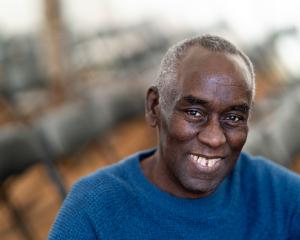THE REMARKABLE MISS DIGBY
Patricia Donovan
Mary Egan Publishing
REVIEWED BY ANNE STEVENS
The year is 1853. Syria will be a new beginning for Jane Digby, the former Lady Ellenborough. She is 46, and conscious of how alone she is in the world. Her family does not want her, her children are either dead or in someone else’s care, and society mocks her for her promiscuity. Jane concedes the gossips barbs still sting and she is foolish to suffer past insults when she creates so many new ones. Her solution is to remove herself from English society.

The Druze of Lebanon are hungry; floods, and blight have destroyed their crops, and it is likely they will cross into Syria for food. They resent the Christians and Jews for cutting them out of new business opening up, as trade with the West grows. Richard likes the young savvy Sultan Abdulmejid but is troubled by his declaration of war on the Russians. He has no doubt it can only lead to the Sultan pleading for British protection.
With all these pressures Richard does not particularly welcome the intrusions of Jane and her request for an escort in dangerous Bedouin country. When Jane arrives in his office he is struck by her beauty and her determination. He tells her, her plan is imprudent and preposterous.
But she is far more concerned about boredom than danger. Richard relents and gives her the name of a guide, Medjuel el Mezrab. The Mezrab are a small tribe that control the territory around Palmyra. Richard still attempts to dissuade her. He tells her el Mezrab is educated, speaks French but will treat her with contempt, the Bedouin regard any traveller foolish enough to cross their territory as lawful prey.
Jane has written to el Mezrab and he visits her and agrees to guide her to Palmyra in the spring. Jamal el Barrak, his competitor, arrives as el Mezrab is leaving her home. He persuades her to go horse riding with him on shorter expeditions in the meantime.
It is these two men and their influence on her that makes the story. In truth, it all seems improbable, partly because Jane is so resilient and unharmed by all that she experiences in the desert and with the Bedouin people. The descriptions though of Bedouin life are fascinating and captivating. The place, though hostile and cruel in many ways, is equally beautiful. A primitive place but one of great civilization.
This is the author’s first novel. In 2008, she had visited Syria and the Roman ruins at Palmyra. Her guide told her about Jane Digby. She was clearly a woman who refused to be constrained by the times and flouted convention. The issues of feminism, religion, and tribalism were as relevant then as they are today.
The author is donating her earnings from sales of this book to Relief Aid, an international organisation founded by New Zealander Mike Seawright, which works on the ground in conflict areas like Syria.
Anne Stevens QC is a Dunedin barrister












